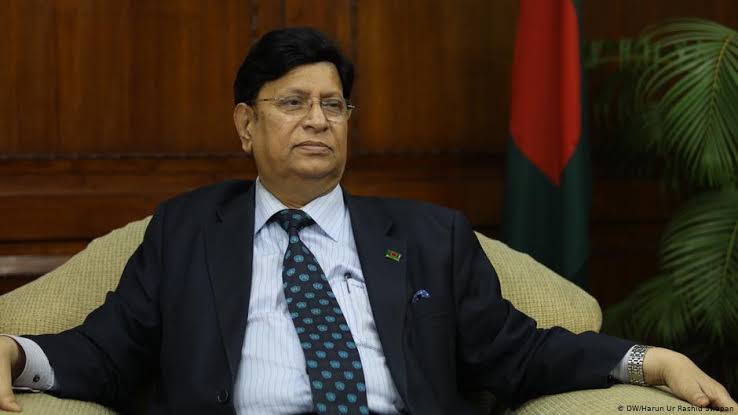Diplomatic correspondent
Published:2020-10-13 20:03:01 BdST
BD not interested in arms purchase under US-led Indo-Pacific Strategy: Momen
Bangladesh is not willing to purchase arms under the proposed Indo Pacific Strategy alliance, led by the United States, the foreign minister said on Monday.
Rather, he added, the country wants American investments in the country's infrastructure.
"They want to sell arms, but we are not interested in issues related to conflict," the minister, AK Abdul Momen, said when asked about Bangladesh's stance on the Indo Pacific Strategy.
This message will be conveyed to the US deputy secretary of state Stephen Biegan as he kicks off his three-day Dhaka visit on Wednesday.
Bangladesh feels that the Indo Pacific Strategy will be effective for the country if it gets US investments in infrastructure building under it.
"We have no objection to the Indo Pacific Strategy. But they should come forward to the infrastructure development if they want to make the Indo Pacific Strategy more effective".
"They have to spend money, only talking will not do, they have to invest," the minister said pointing out that the US has no contribution to Bangladesh's infrastructure development.
"They can do it if they want," he said defending his argument.
A recent move by the US to sell sophisticated defence equipment, including Apache helicopters, could not be materialised.
US officials admitted that they had several rounds of talks with the authorities concerned on selling of sophisticated US defence equipment, which they claimed are the 'best in the world'.
According to a recent study by the Stockholm International Peace Research Institute, China is the fifth biggest arms supplier in the world and also supplies most weapons to the region, except India, its regional rival.
Around 35 percent of China's arms supplies went to Pakistan between 2013 and 2017, followed by 19 percent to Bangladesh.
Dhaka procured 71 percent of its arms from China over the five-year period, and Myanmar 68 percent.
In view of the growing influence of China in the region, the US and its allies launched the Indo Pacific Strategy, apparently to counter China's Belt and Road Initiative (BRI).
Bangladesh has already become a major partner of BRI under which it will get over US$25 billion for building infrastructure.
Recently, the USA has unleashed a fresh diplomatic offensive to revamp its ties with the regional countries, which have become partners of the China-led BRI.
Meanwhile, the visit of the US deputy secretary of state is considered to be part of that effort, analysts said.
Asked about possible agenda, the minister admitted that the Indo Pacific Strategy will be a major focus in the talks between Bangladeshi officials and Mr Biegun.
However, issues related to Rohingya, visa and Covid cooperation will also come up, he added.
"We'll discuss the Rohingya issue and we will make it clear that we are not interested in only humanitarian assistance, our main goal is repatriation, they must go back to that country," the minister said.
Dr Momen criticised the US for not issuing visas to some Bangladeshi students, who secured I-20 from American institutions.
"They have not issued visas to Bangladeshi students who got I-20, but students of the neighbouring countries like India and Pakistan got the same category visas. This is discriminatory," he noted.
This is very discriminatory because Bangladesh's condition is better than other nations in terms of Covid control, impact is much lesser in the country, he argued.
"Still, they did not issue visas to our students, this is not good," he said.
"We also want support for our garment sector, which was affected by Covid," the minister said.
For example, the US can offer the garments sector three years' moratorium on duty to enable the country to absorb shocks from Covid, he added.
Unauthorized use or reproduction of The Finance Today content for commercial purposes is strictly prohibited.


